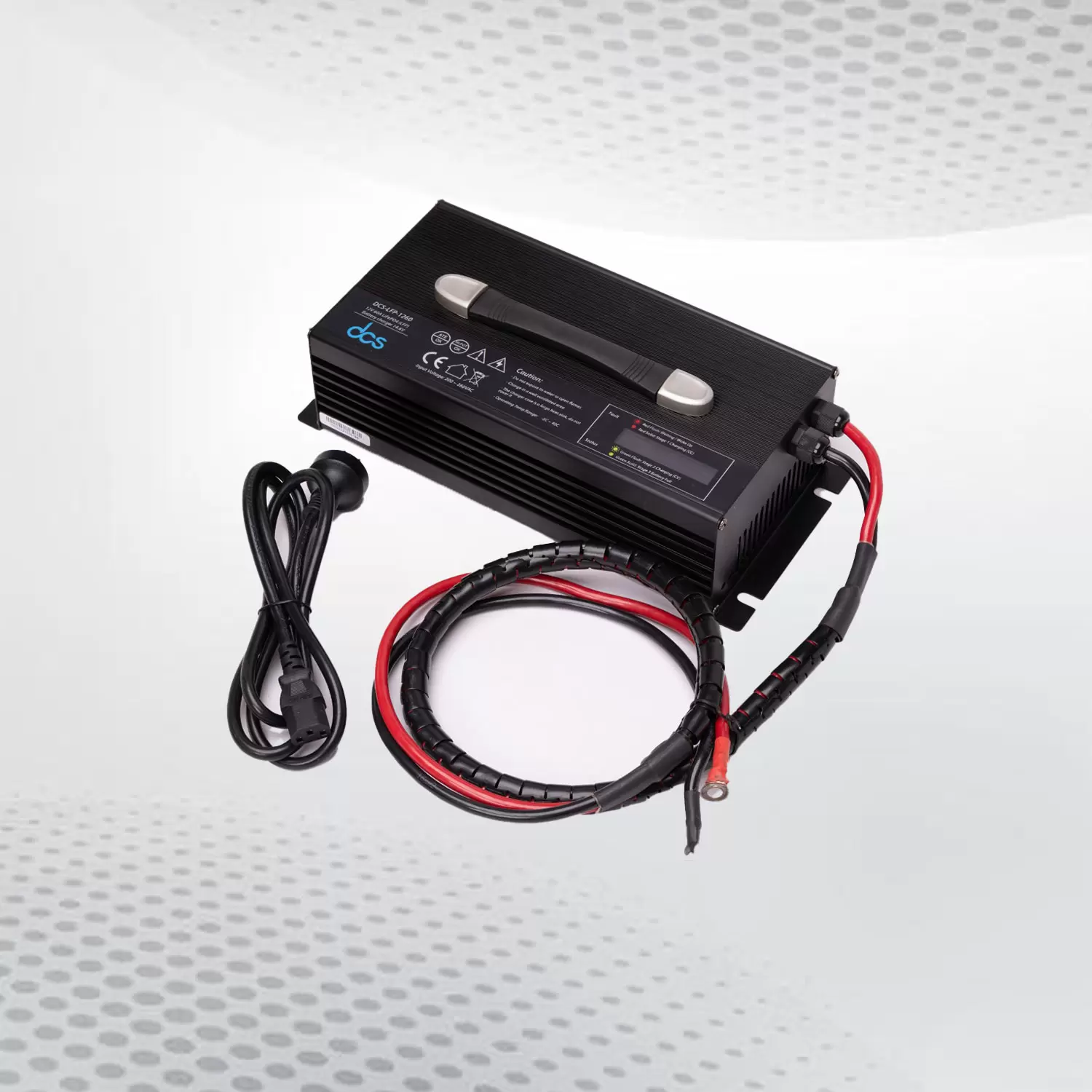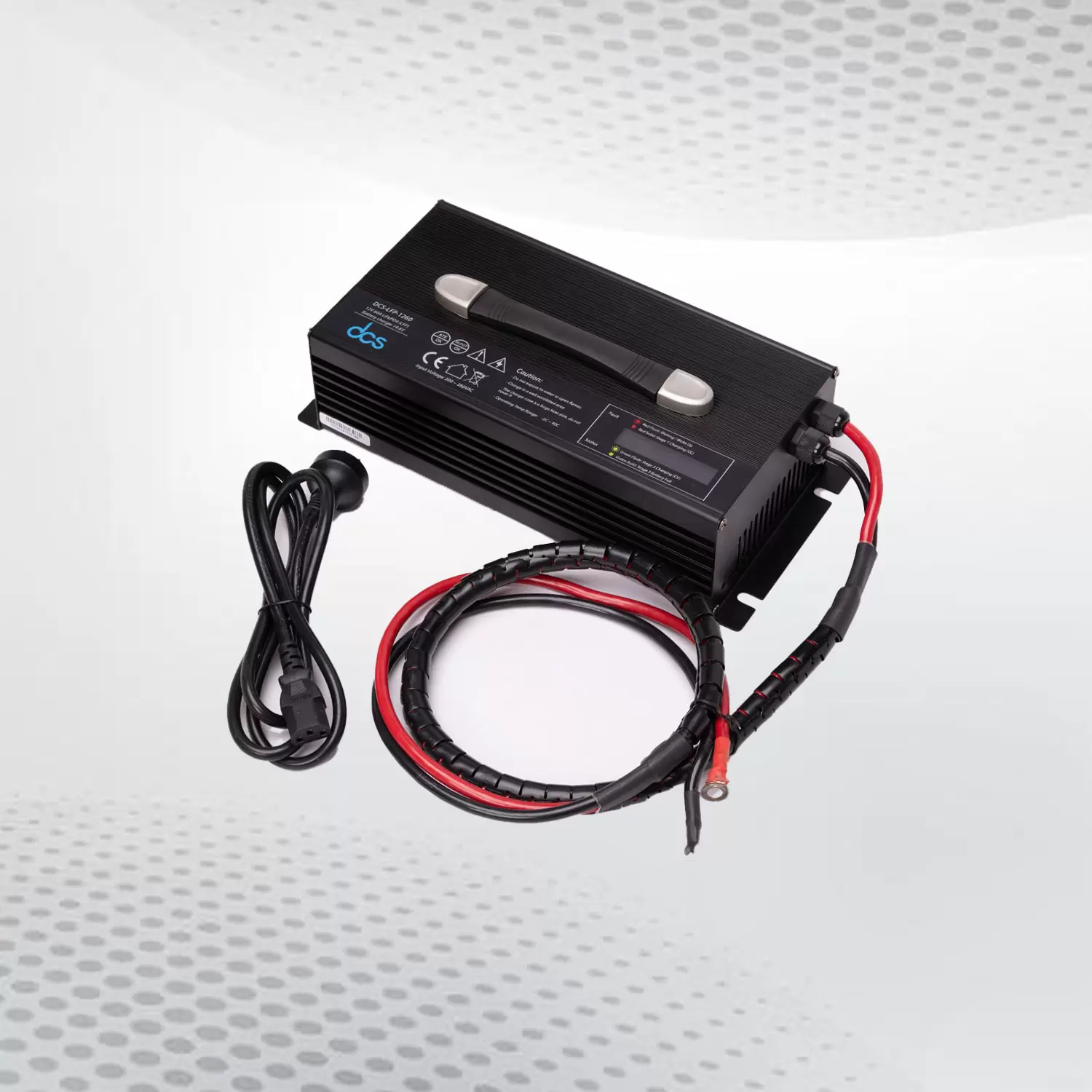When it comes to charging your devices efficiently and quickly, a 12v Lithium Battery Charger is the way to go. These chargers are designed to provide fast and efficient charging for various devices, making them an essential tool for anyone on the go. In this blog post, we will explore why your next Charger should be a 12-V Lithium Battery Charger, the advantages of using one, how to choose the right Charger, best practices for charging your lithium battery, the future of 12v Li-Ion Battery Charger, real-life applications, and answer some frequently asked questions.
Understanding the Basics of Lithium Ion Battery Charger 12v
To grasp the fundamentals of a Lithium Ion Battery Charger 12v, it’s essential to understand the technology behind lithium-ion batteries and how they are designed to work with them. Lithium-ion batteries are popular due to their high energy density, minimal memory effect, and slow loss of charge when not in use, making them ideal for a wide range of devices, from small electronics to large appliances.
A 12v Lithium-Ion Battery Charger is specifically engineered to meet the charging requirements of lithium-ion batteries. Unlike NiCad or lead-acid batteries, lithium-ion batteries require a precise charging process that typically involves constant current followed by voltage charging. Initially, the Charger applies a steady current to the battery until it reaches a certain voltage level. It switches the mode to maintain this voltage, preventing overcharging and enhancing battery life.
An integral feature of these chargers is their built-in safety mechanisms, which safeguard against common dangers such as overcharging, overheating, and short-circuiting. These safety features are crucial, as lithium-ion batteries can pose risks if improperly handled or charged.
Understanding the voltage requirement is also key when using a 12v charger. The “12v” in its name indicates the output voltage it’s designed to provide, which should match the voltage requirement of the battery being charged. A charger with the correct voltage is vital to ensure efficient charging and avoid potential battery damage.
In essence, a 12v lithium-ion battery Charger optimizes the charging process for lithium-ion batteries, offering a blend of efficiency, speed, and safety. Its design and functionality cater specifically to the unique needs of these batteries, making it an indispensable tool for maintaining their performance and longevity.
The Advantages of Using 12v Lithium Charger
Efficiency and Speed:
12v Lithium Charger are renowned for their high efficiency and fast charging capabilities. They significantly reduce the time required to charge batteries compared to conventional chargers, making them ideal for those who need their devices ready to use quickly.
Enhanced Battery Life:
Utilizing a controlled charging process that prevents overcharging, these chargers help prolong the lifespan of lithium batteries. The precise delivery of current and voltage ensures that batteries are charged optimally, maintaining their health and performance over many charging cycles.
Safety Features:
Modern 12-v Lithium Chargers have multiple safety features that protect against risks such as overcharging, overheating, and electrical short circuits. These built-in protections offer peace of mind, ensuring a safe charging environment for your devices.
Portability and Versatility:
Many 12v Lithium Battery Chargers are designed to allow users to carry them on the go easily. Their versatility extends to charging a wide range of devices, from small gadgets to larger electrical tools, making them versatile in personal and professional settings.
How to Choose the Right 12-V Lithium Battery Charger?
When choosing a 12-V Lithium Battery Charger, consider factors such as charging speed, device compatibility, safety features, and portability. Look for a charger from a reputable brand with good reviews that meets your charging needs.
Choosing the right 12-V lithium battery charger is crucial for ensuring battery longevity, safety, and optimal performance. Here are some key considerations to guide you through the selection process:
Firstly, verify the Charger’s compatibility with your battery’s chemistry. Lithium batteries come in various types, such as LiFePO4 and Li-ion. Chargers are often designed for specific lithium chemistries, so ensure the Charger matches your battery’s type to prevent damage and provide efficient charging.
Next, check the Charger’s voltage and current ratings. The Charger should output 12 volts, corresponding to your battery’s nominal voltage. The current rating (measured in amperes) should also align with your battery’s specifications. A charger with too high a current can overheat and damage the battery, while too low a current can result in slow charging. As a rule of thumb, choose a charger with a current of about 10-20% of the battery’s capacity (Ah rating).
Safety features are paramount. Look for chargers with built-in protections against overcharging, overcurrent, short circuits, and overheating. These features safeguard the Charger and the battery, preventing potential hazards like fires or battery damage.
Consider the Charger’s charging profile. A quality 12-V lithium battery charger should have a multi-stage charging process, typically including constant current (CC) and voltage (CV) stages. This method ensures efficient and safe charging by initially providing a steady current and then reducing the current as the battery approaches full charge.
Ease of use and additional functionalities can also influence your decision. Chargers with clear indicators for charging status, such as LED lights or digital displays, offer a better user experience. Some advanced chargers also provide features like battery diagnostics, maintenance modes, and the ability to charge multiple types of batteries, adding versatility. Lastly, consider the build quality and brand reputation. Opt for chargers from reputable manufacturers known for quality and reliability. Reading reviews and seeking recommendations can help you avoid low-quality products.
By carefully evaluating these factors, you can select a 12-V lithium battery charger to ensure efficient, safe, and reliable battery charging.
Best Practices for Charging Your Lithium Battery
Follow some best practices to ensure the longevity of your lithium battery and to charge it safely. Avoid overcharging or undercharging your battery, use the Charger specifically designed for your device, and store your battery properly when not in use.
Lithium batteries, widely used in smartphones, laptops, and electric vehicles, require proper care to ensure longevity and optimal performance. To maximize their lifespan and maintain efficiency, follow these best charging practices. Firstly, avoid deep discharges and full charges. Lithium batteries perform best when kept between 20% and 80% of their capacity. Regularly letting the battery drain completely or charging it to 100% can degrade its capacity. Using partial charges is a healthier alternative, promoting longevity.
Secondly, charge at moderate temperatures. Extreme heat or cold can adversely affect battery health. Charging in a cool, dry place is ideal. If your device gets warm during charging, remove any cases that might insulate heat, and avoid charging in direct sunlight or near heat sources.
Third, use the correct Charger and cables. Mismatched chargers can lead to inefficiencies and potential damage. Always use the Charger provided by the manufacturer or a certified alternative that meets the device’s specifications. This ensures the correct voltage and current are applied, protecting the battery. Additionally, avoid overnight charging. While modern devices are equipped with mechanisms to prevent overcharging, maintaining a battery at 100% for prolonged periods can still cause stress. If it’s better, unplug the device once it reaches around 80% to 90%.
Regularly update your device’s software. Manufacturers often release updates that include battery management improvements. Keeping your software current can enhance battery efficiency and performance. Lastly, if you plan to store a device for an extended period, charge the battery to about 50% before turning it off. Batteries stored at full charge or completely drained tend to lose capacity faster. By following these guidelines, you can significantly extend the life and efficiency of your lithium battery, ensuring reliable performance for your devices.
The Future of 12v Li Ion Battery Charger
As we look towards the future of 12v Li Ion Battery Charger, technological advancements and innovations are set to redefine how we charge our devices. With a growing emphasis on sustainability and energy efficiency, future chargers must incorporate eco-friendly materials and energy-saving technologies. Wireless charging capabilities for lithium-ion batteries may become more prevalent, eliminating the need for cords and making charging more convenient. Additionally, the integration of smart technology is anticipated, enabling chargers to adapt the charging rate based on the battery’s condition and history to optimize charging efficiency and extend battery life further.
Another exciting prospect is the development of ultra-fast charging technologies that could significantly reduce charging times without compromising battery health. As the demand for portable power continues to rise, the evolution of 12v Li-Ion Battery Chargers will play a crucial role in powering our increasingly mobile and tech-driven lives. These advancements promise to make charging quicker, more efficient, and tailored to the individual needs of users and their devices, ensuring that the future of charging is as dynamic as the technology it supports.
Real-Life Applications of Battery Charger 12v Lithium
Automotive Uses: Battery Charger 12v Lithium is widely used in the automotive industry, particularly for charging the lithium-ion batteries in modern electric vehicles (EVs) and hybrid cars. They ensure these vehicles are ready for the road by providing quick and efficient charging, maximizing the time between charges. Portable Electronics: In portable electronics such as cameras, laptops, and smartphones, these chargers offer a reliable power source. By keeping these devices charged, users can stay connected and productive regardless of location.
Outdoor and Recreational Activities: For enthusiasts of outdoor activities such as camping, hiking, or boating, 12v Lithium Battery Chargers are invaluable. The power portable fridges, GPS devices, and lighting, enhancing the outdoor experience by ensuring essential gadgets remain operational throughout the adventure. Renewable Energy Systems: These chargers are critical in managing and storing energy in solar power setups and other renewable energy systems. They efficiently charge storage batteries during periods of high energy generation, such as sunny days, making the energy available for use during lower generation times.
Conclusion
In conclusion, a 12-V Lithium Battery Charger is a must-have tool for anyone looking for fast and efficient device charging. These chargers can charge devices quickly, safely, and efficiently, making them convenient for anyone on the go. Consider investing in a 12-V Lithium Battery Charger for your next charging needs.
FAQs
1. Can I use a 12v Lithium Battery Charger to charge devices with different voltage requirements?
It is recommended that you use a charger that matches your device’s voltage requirements to avoid damaging the battery.
2. How long does charging a device with a 12v Lithium Battery Charger take?
– The charging time will vary depending on the device and battery capacity. However, 12-V Lithium Battery Chargers are known for their fast charging capabilities.
3. Are 12v Lithium Battery Chargers safe to use?
Yes, as long as you use the Charger properly and follow the manufacturer’s instructions, 12-V Lithium Battery Chargers are safe and will not damage your devices.
| Other Good Articles to Read |
| skank blogs |
| unreal blogs |
| tba blogs |
| all city forums |
| dany blogs |
| the music blogs |
| key forums |
| the big blog theory |
| joe blogs |
| blogs 4 me |
| Blogs Emon |
| Related Business Listings |
| Contact Directory |
| Local Business Profiles |



